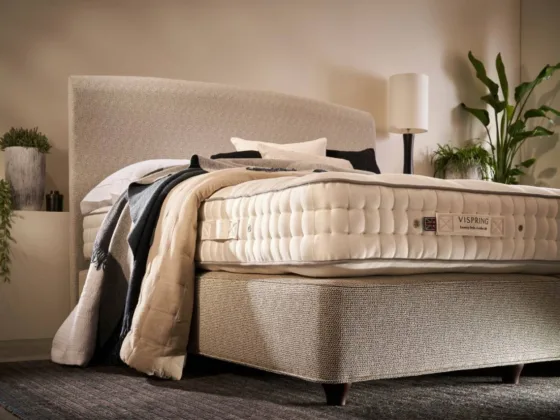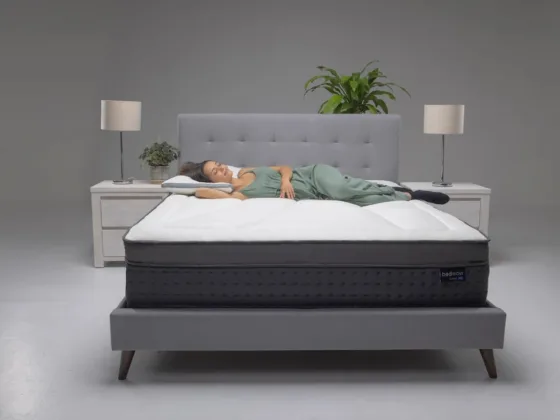Table of Contents Show
Would you like to get a better night’s sleep? The following are some useful tips to help you do exactly that.

Determine How Much Sleep You Need
The average adult needs a minimum of 7 hours of sleep every night in order to feel rested when they wake up. The National Sleep Foundation reports that a majority of adults need to have 7 to 9 hours of sleep each day.
Of course, certain situations and factors will affect the amount of sleep you get. Age, pregnancy, and other health issues are some of the other factors that can impact your sleep quality and sleep.
How can you determine the amount of sleep you need? Answer the following questions.
Read Also :
Do You Need to Use an Alarm to Wake up in the Morning?
There are some individuals who wake up in the morning without needing an alarm clock.
If you have a tendency to naturally wake up early, and not due to the fact that you had a couple of drinks or have a sleep disorder, that could be your brain sending a signal to your body that you have had enough rest.
However, if you have a hard time getting out of bed (even once the alarm sounds), there is a good chance you need more sleep, did not sleep well, or your sleep schedule needs to be adjusted.
How Are You Feeling?
If you keep a sleep diary it can help you notice and identify patterns in your sleep routine.
There are also sleep apps that are available to download that can help you monitor your sleeping patterns. The data that you collect can be used to help you determine which sleep routine is best for your health.
Listen carefully to your inner self to sense if you feel anxious or fatigued throughout the day. Those are clear signs and indications that are not getting a sufficient amount of sleep.
Does it take You a Long Time to Fall Asleep?
The average person takes around 20 minutes to fall asleep. Some people drift off in just a couple of minutes after they lay their head on the pillow.
However, if you struggle to get to sleep and turn to toss and turn for 30 minutes or longer before you fall asleep, your lifestyle or other external factors could be the cause.
Don’t Consume Alcohol or Caffeine Before You Go to Bed
Although alcohol can help you quickly drift off to sleep, you will end up repeatedly waking up during the middle of the night to have to go to the bathroom.
Also, alcohol reduces REM while you are sleeping, which is another reason why you should not drink during the last couple of hours before you go to bed.
Caffeine is a stimulant that disrupts REM as you are sleeping. Drinking coffee before going to bed can cause lightheadedness and make it difficult to fall into a deep state of sleep.
Therefore, it is recommended that you not consume any caffeine within 6 hours before you go to bed.
Your sleep quality can be significantly impacted by even slight disruptions while you are sleeping (REM). These disruptions can make it difficult for you to concentrate throughout the day at work.
However, you can help to prevent this from occurring by limiting your intake of caffeine and alcohol.
Don’t Charge or Use Your Phone While You Are In Bed
You should avoid using or charging your phone once you are in bed. You will often find yourself scrolling for hours through social media when you should be trying to sleep.
Blue light is also produced by smartphones which have a tendency to disrupt your normal circadian cycle. It also inhibits melatonin production, which is the hormone that works to induce sleep.
This blue light that electronic devices produce mimics daylight and can therefore mess up your body’s internal clock.
Avoid Taking Long Naps During The Day
Although a power nap can help to rejuvenate your muscles, mind, and soul, a long nap can have a negative impact on well you are able to sleep at night.
Research shows that long naps mess with your internal clock which makes it hard to fall asleep at night. According to sleep experts, you should not take naps that are over 90 minutes long during the day.
If your internal clock is still disrupted by napping for only a few minutes, try not to do any napping. Find something else to do other than napping so you can sleep well at night.
Invest In a Comfortable Pillow and Mattress
Having a good pillow and mattress makes it easy to get a good night’s sleep while having uncomfortable ones will just make things worse.
Investing in a supportive and comfortable mattress can help to reduce lower back pains and also prevent shoulder pains, back stiffness, and help to improve the quality of your sleep, read these hybrid mattress reviews.
Although a mattress can last for a decade or more, sleep experts advise that your pillows be changed once a year. If both your pillows and mattress are unsupportive or too old, you can begin to save to buy new ones. Just make sure to choose the most comfortable and best mattress that you can afford.










